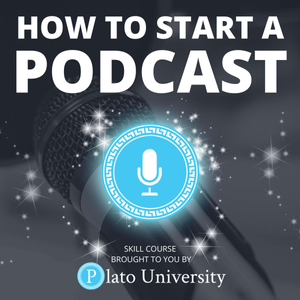
Responding to COVID-19, Pandemics, and Other Challenges in Rural Education
03/18/20 • 60 min
Previous Episode

S01E04 -- The Four Day School Week, Benefits and Disadvantages. An Interview with Dr. Jon Turner
In this episode of the Rural Voice, Drs Pratt and Bigham interview Dr. Jon Turner, Assistant Professor of Counseling, Leadership, and Special Education at Missouri State University on his research regarding the four-day school week. In this episode, Dr. Turner discusses his research related to the benefits and disadvantages of the four-day school week and the various forms of implementation around the United States. Dr. Turner discusses the potential saving of the four-day school in terms of salary, gas, and utility expenses but cautions that many school systems refuse to lay off teachers or staff and therefore do not capitalize on the cost savings of reduced salary. Nevertheless, Dr. Turner suggests that the educational benefits to students are apparent and that many older teachers apply to work in such systems given the three-day weekend. Dr. Turner concludes by suggesting the need for equity of salaries of teachers within a geographic area would help attract talent to rural school systems when compared to urban or suburban salaries. For more information on Dr. Turner's research or research on the four day work week, please go to http://www.fourdayweek.us
Next Episode

S01E06 -- Can Rural Schools be 99% Represented in High Speed Internet Access for Online Learning, Interview with Dr. Steve Johnson with Lisbon North Dakota Public Schools.
In this episode of the National Rural Education Podcast, we interview Dr. Steve Johnson of Lisbon Public Schools in North Dakota. In this podcast, Dr. Johnson discusses shifting from classroom to online from the perspective of a small rural school district and the northern plains of the Midwest. Dr. Johnson shared that the schools are the center of the community for not only education but socializing and connecting with others. He discussed responding to the call by the governor to react quickly to COVID-19 shifting a variety of rural school districts to online learning. North Dakota shifted quickly to address the new challenges of the new culture we find ourselves in. They met the challenges, with 99% of students shifting online successfully. Yes, you read that right, 99%. As an example, all homes with children were given fiber optic internet connections for school work. The teachers collected data for their families in their rooms regarding accessibility to the internet as well as other data collection regarding family technology use. Dr. Johnson shifted to discussing the appropriate use of applications and learning materials, depending on grade level as well as ADA compliance. This was an excellent interview with details regarding methods for shifting online for rural schools. Notes and Links from the podcast https://www.nd.gov/dpi/parentscommunity/nddpi-updates-and-guidance-covid-19 https://www.ag.ndsu.edu/alerts/coronavirus https://remote-learning-p-12.mn.co/topics North Dakota has also had our Center for Distance Education, which has its roots in “Correspondence School,” taking classes by mail dated back to 1935! We are using them as mentors for our teachers as I have a very close working relationship with Dr. Matthew Lonn, State Director. Members of NDSOS have many advantages working with CDE resources as part of their membership in NDSOS. https://www.ndcde.org/
If you like this episode you’ll love
Episode Comments
Generate a badge
Get a badge for your website that links back to this episode
<a href="https://goodpods.com/podcasts/national-rural-education-association-official-podcast-28807/responding-to-covid-19-pandemics-and-other-challenges-in-rural-educati-9296597"> <img src="https://storage.googleapis.com/goodpods-images-bucket/badges/generic-badge-1.svg" alt="listen to responding to covid-19, pandemics, and other challenges in rural education on goodpods" style="width: 225px" /> </a>
Copy




